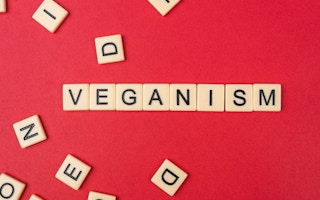The new year is finally here with new lockdowns and new restrictions. But one thing remains the same: Veganuary. This tradition is getting more popular every year as people become more concerned about their health and the environment.
According to The Vegan Society, if the entire global population were to switch to a vegan diet, some eight million lives could be saved by 2050, CO2 emissions would be cut by two-thirds, and savings in terms of healthcare and climate damage could amount to as much as $1.5trn.
Going vegan for one month is often considered a big challenge. But becoming a vegan investor is a completely different story. Why? Because being vegan is not just about avoiding meat.
For example, strict vegans don’t wear clothing made from animal products, such as leather, and they don’t use any products that are made using animal testing. This means that simply avoiding companies involved in the production of meat is not enough to meet a strict vegan’s criteria.
Animal testing is one of the main issues that vegan investors are facing. Most funds make regular investments in companies that are in some way involved in this practice. This is even the case when considering only funds labelled as (environment, social, government) ESG or ethical. There are two main reasons why this happens.
First, most fund houses don’t have animal testing as one of their exclusionary ESG screens. Second, laws and regulatory agencies worldwide currently require medicines to be tested on animals before clinical trials on humans, meaning all pharmaceutical companies would fail under this requirement.
Veganism and finance are not best friends just yet.
What do we say?
For this week’s article, we decided to look into the food industry, with a particular focus the meat, fish and dairy producers. Are these companies really bad for the environment?
Looking at Arabesque S-Ray data, companies in the meat/fish/dairy industry have an average ESG score of 52.45/100*. This is below the sector average (Consumer Non-Durables) that stands at 54.86/100*. Interestingly enough, if we only look at the environmental dimension, the two averages are pretty much aligned.
Moving onto emissions, which is often the most criticised environmental component of meat-based products, 52 per cent of companies in the meat/fish/dairy industry are aligned with the Paris Agreement having a long-term Temperature Score (2050) of 1.5°C or 2°C.
However, about 30 per cent of companies in this industry have a score of 3°C, meaning they are not disclosing sufficient information for us to calculate an accurate score. Only 26 per cent of companies report their Scope 3 emissions providing emissions data on their entire supply chain.
There is definitely room for improvement!
What does it mean?
Being “good” for 1 month does not make up for the other 11. The food industry is a big contributor to the climate problem. Long term changes must be implemented and we need to find a realistic and sustainable way forward. Veganism every day for everyone is not the answer.
A sustainable change in our food habits would also be beneficial to the financial sector, since it would uncover new investment opportunities. Just think about what happened with the plant-based meat market over the past years.
Five years ago it was almost non-existent and now it could grow to around $50bn by 2025. Beyond Meat was the first meat substitute company to IPO in 2019 and this looks like just the beginning.
The pressure to produce more food, or at least to make more money from agriculture, is driving nations to clear forests and wetlands for farms and divert freshwater to grow crops in the desert. This will drive more atmospheric changes, creating a vicious cycle of food system disruptions.
But it doesn’t have to be this way. We can change it!
*Source: Arabesque S-Ray, data as of 7th January 2021.
Arabesque is a global group of financial technology companies offering sustainable investment, advisory, and data services through advanced ESG and AI capabilities.


















